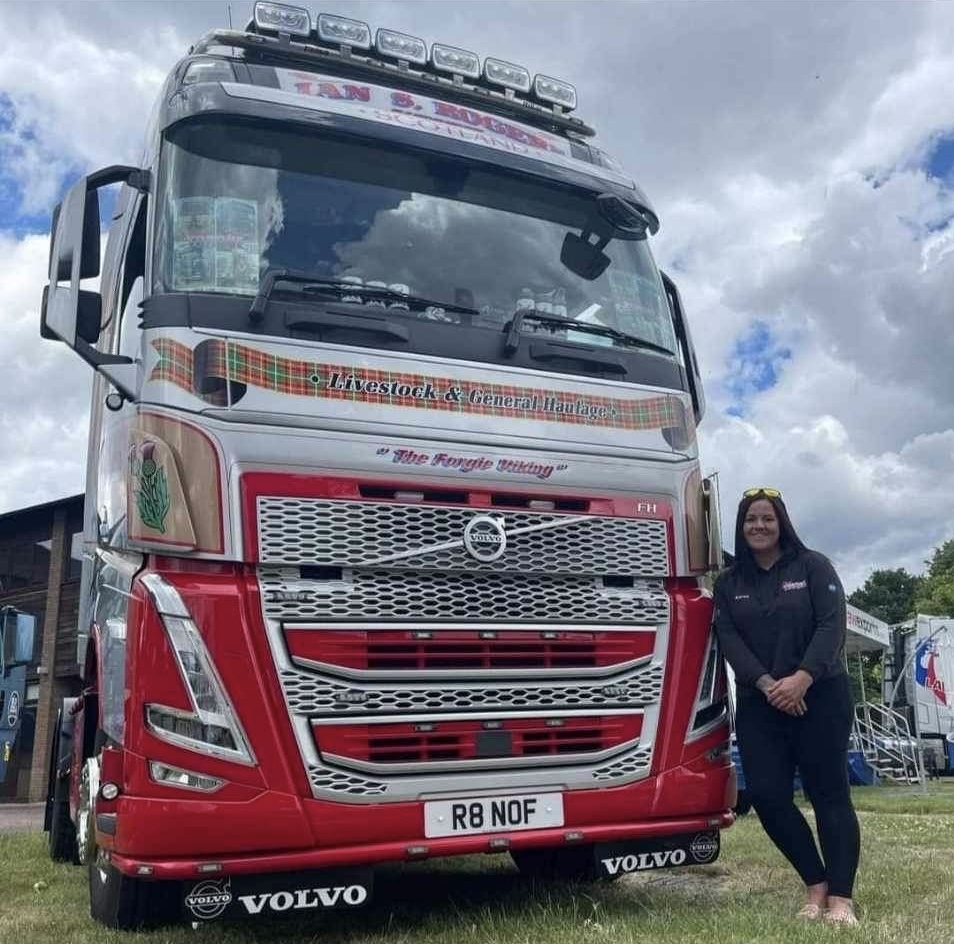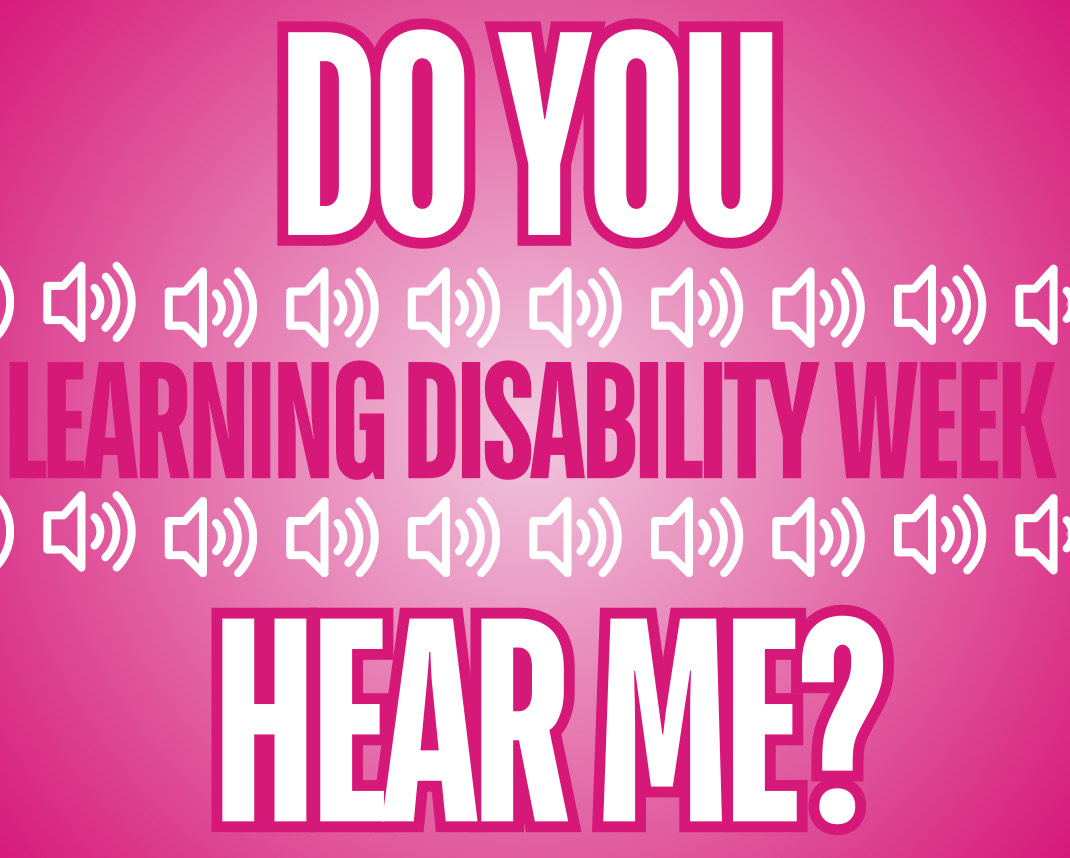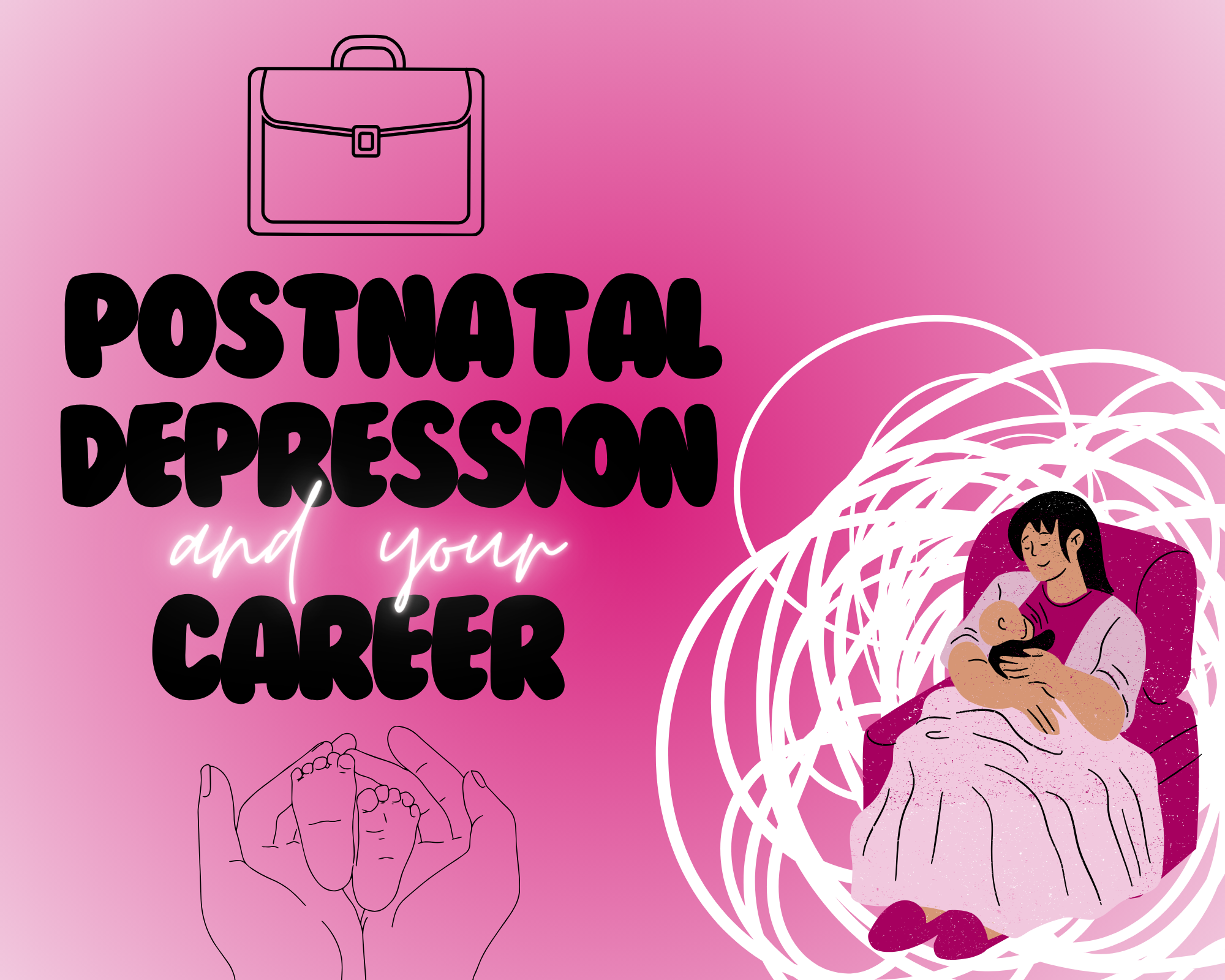You might be stuck for an idea of what to do for a career, but you know you like driving. Have you ever considered a life on the road in the HGV industry?
The haulage and trucking industry is the fifth-largest employer in the UK, yet so few people in this industry identify as women. Why is that? Werk spoke to three female HGV drivers about their experiences and why they chose a career in this industry.
Adele Craven, 41 is a class A driver from Leeds and “This is the job I’ve wanted to do ever since I was younger. I got talked out of it as a teenager and got told I was being stupid, thinking I could be a lorry driver and you do get talked out of it, you get pushed towards different careers. It took me a long time to get the confidence to think that I actually could do this job; it was all the lorry drivers who actually gave me the confidence and female drivers that I met who said, no, you actually can do it.”
Adele started her working life as a hairdresser, but once she passed her driving test, she became a van driver, delivering sandwiches around industrial estates.
“I finally, at 40, started the process of becoming a driver and passed my test at 41. I became a lorry driver, and I made so many changes in my life. Now, I have the best life ever. If it’s your dream, go for it, because once you’re happy in your work life, you’re happy, and everything else falls into place.” She continues to tell us that she now has “a life that I never dreamed I could ever have, but I’ve got it now.”
This isn’t to say her journey has been all smooth sailing; she has faced many challenges within this industry. She said, “We sacrifice birthdays and funerals. I mean, some even sacrifice their Christmases and Easters to make sure things are propped up to where they need to be. So yeah, it is very, very difficult.”
Being a woman in such a male-dominated industry poses further challenges, “I’ve been propositioned by drivers at service stations. Because you’re female and you’re out on the road, they think they have a right to ask you for sexual favours”. Adele posted about this on her LinkedIn account and had a positive response, “the one thing I can say is, the people who own the place actually saw the post, and actually, they have changed a lot of security, not just in that one, but in a lot of their service stations”.
There are other things that also need to be improved for the female drivers out there, “I turned up at one service station, and there were 11 female drivers on site, there was one shower for us, and that shower was mucky. We were all red hot, we needed a shower, and we were all saying, why don’t we rent a room at the hotel at the side and just use the shower? One of the blokes said, no, that’s not right. He says, I’ve just been and used the showers, and the menus are fine; they’re spotless. So they actually went and blocked off the showers so us ladies could go in and use them.”
Asking Adele to sum up her job, she tells us, “Yeah, all I can say is we are so lucky in a way; in our industry, we get to see the world wake up, and we get to see the world go back to sleep again. But we get to see so much out there. We get to see the world in all its glory; we get to see so much from that windscreen.”
Louise Holman,26, from Doncaster, spoke to us from her Arctic Lorry Curtain Sider at a service station. “Tonight, I’m parked in Sunderland; I can’t leave my truck for more than 20 minutes. The only thing I can do is walk to the local supermarket and back to my truck. And then I’m in my truck for the night. I quite like my own company so, for me, it’s quite easy. But when I first transferred into the job, I found it really difficult.”
“I got homesick, I’m not going to lie. It was hard because I was so used to always being at home, to being able to go and do my own thing in the evening if I wanted to. In this job, you can’t do that. I get my weekends to myself, so it’s just a matter of making the time that I am at home worth being at home and spending as much time with family as I can.”
Despite the challenges of being away from her three stepkids and her husband, she said: “I love my job; it’s the best career change I ever made.”
Louise started working as a care worker and then moved into administration at the company she now drives for. Louise’s husband is also a driver, and when she was considering making the move to driving, he took her out for a spin so she could get a taste of the driving life.
“We work for the same company, so I was able to go out with him and see what the job was like before I actually committed myself to doing it. My company had no female drivers until I passed my test. We now have five.”
Louise has been driving for a year and a half now, she said: “Every day is a new day. Every day is a different day. You will face different challenges every single day. Every different customer you go to, and I’ve only been driving for 18 months, and the different customers that I’m seeing, the different yards that I’m having to go in, and some of them, I look at them and I’m like, I’m not getting this in there. But I still do. Every day is a new challenge, and you have to be willing to accept that challenge to do this job. You have to be open to whatever’s going to come your way.”
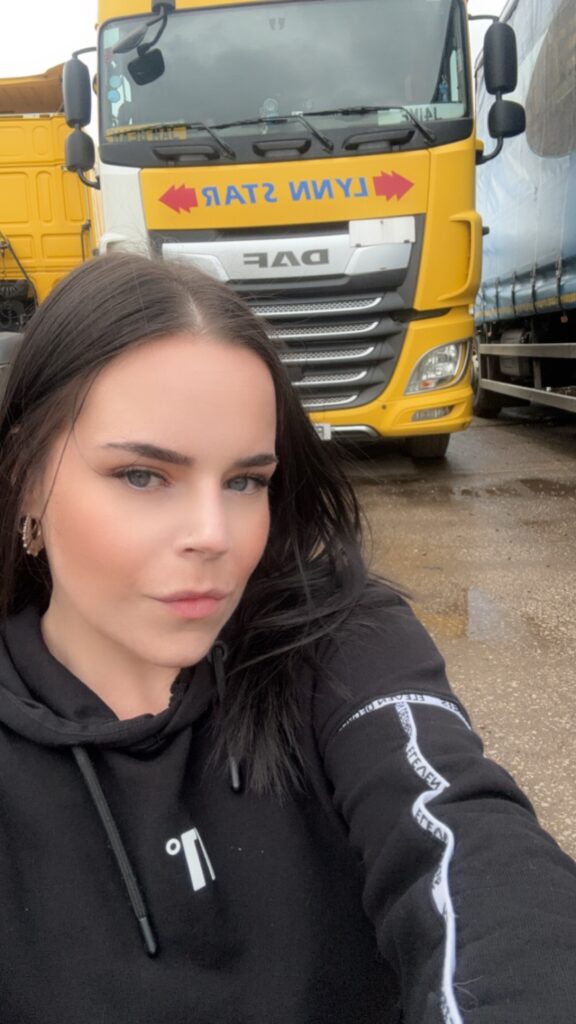
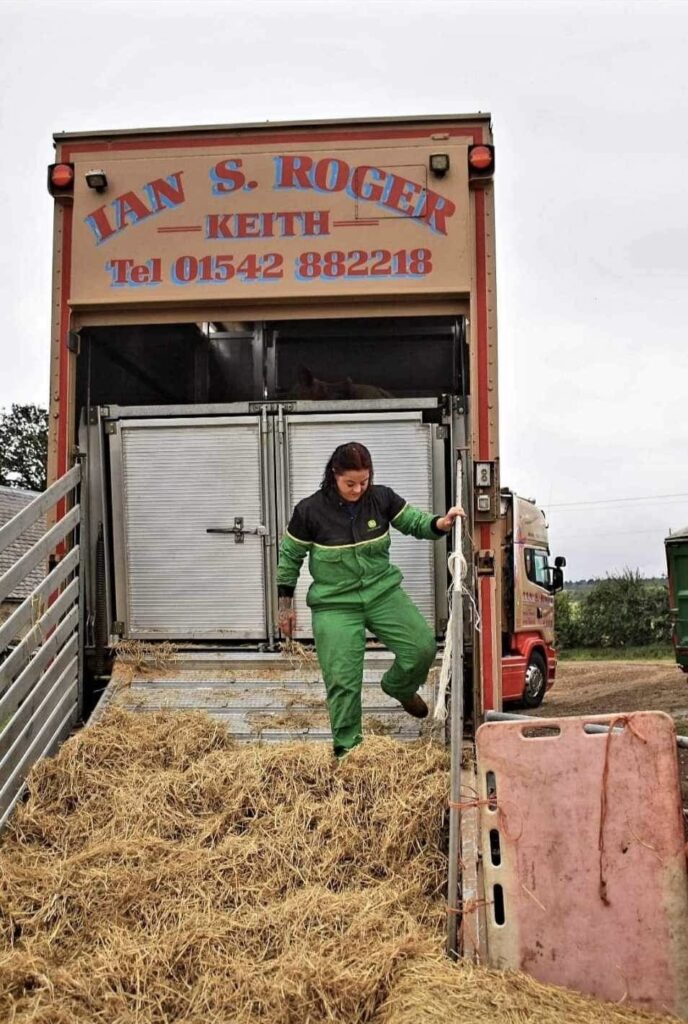
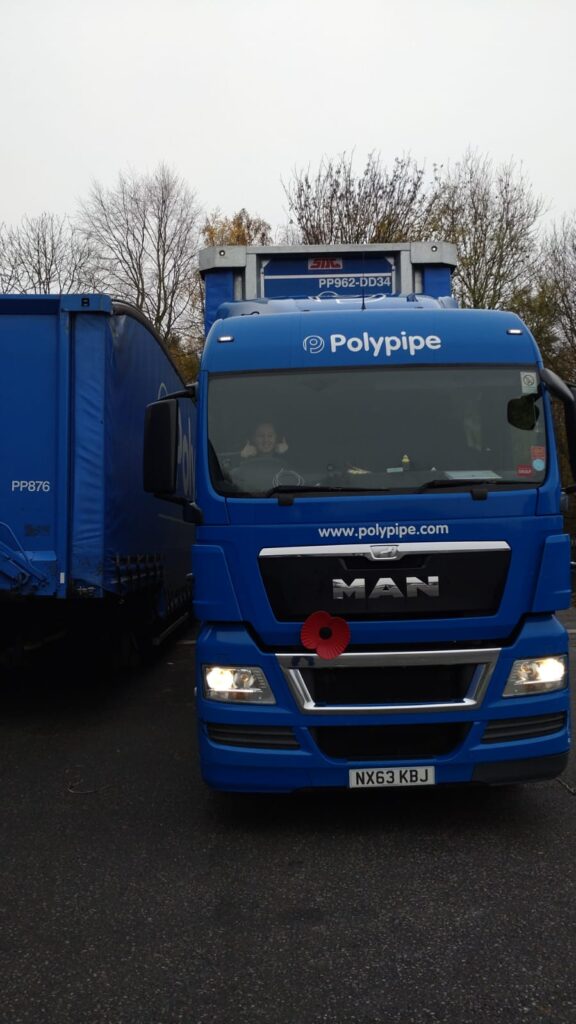
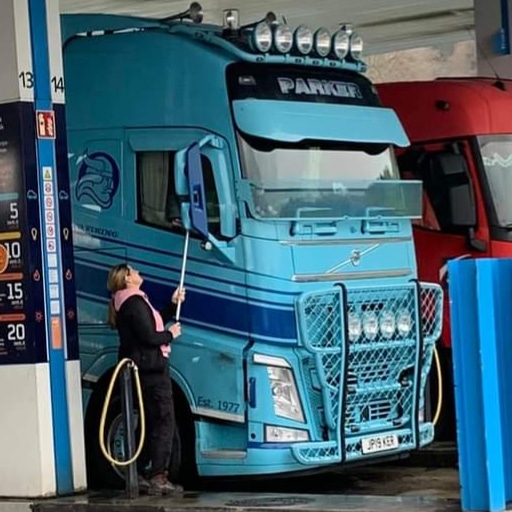
Karen Sutherland, 36, from the Black Isles, has been living her life behind that windscreen for the last ten years. During this time, she experienced negativity about being a female in her position, so she founded a charity called Girl Torque in 2021, “I gathered a group of inspiring women I had met in my years in the industry to challenge stereotypes about females in the field”.
She was tired of people coming up to her and saying, “Oh my God, how do you drive that? And, like, I’m as blunt as you can be, and say you put your foot on that, and the f*cking thing goes. And then they turn around and say, oh, there’s no need to be so cheeky. And I’m like, oh, there’s no need to be so f*cking condescending.”
They decided to create a calendar featuring photos of themselves at work to challenge the stereotypes, “you would think, if I say to somebody, oh, we’ve got a fully clothed calendar, it sounds boring, but it’s actually really good because it’s showing the girls in their working environment.”
Karen distributed the first 1000 copies across the country. As the initiative gained momentum, another 1000 calendars were sold, raising an impressive £25,500 for six charities.
Today, the charity is still going strong and expanding, with a commitment to fostering a supportive community for women pursuing careers in transportation. This is being achieved through promoting and normalising women’s roles in the industry to inspire women to defy stereotypes and pursue their passion.
As she says, “At the end of the day, it’s driving. If you’re good at it, you’re good at it. It doesn’t matter what’s between your legs, whether you can drive or not.”
Advice from the women on the roads:
- Go for it! Own it! Enjoy it! (Nicola Reid, 40)
- Just do it, ignore the remarks and the stares, I’ve seen places that I’d never see whilst doing this job. (Tania Wade, 56)
- Don’t take anything to heart; just get on with the job, do the best you can and enjoy it. It can be stressful at times, but look for the positives, just like any job! (Rachel Moroto, 39)
- Yes, ask as many questions as you can and find an older school driver for advice. They are always willing to help. (Jessica Brooks, 33)
- Women can do it as good as men. Believe in ourselves. (Felisbela Marques, 44)
- You are a driver. Not a lady driver, a driver. Go in, do your job and prove yourself like any other driver has to. (Janice Anderson, 57)
- Have a thick skin. The sense of humour is very ‘male-dominated’, and it can be a tough job. (Jaime Tuffs, 32)
- Take each day at a time, if you struggle with your reversing don’t panic it will come but it will take time (Louise Holman, 26)
If you want to hear about more women championing a male-dominated industry why not read: Women in farming: The key to success

